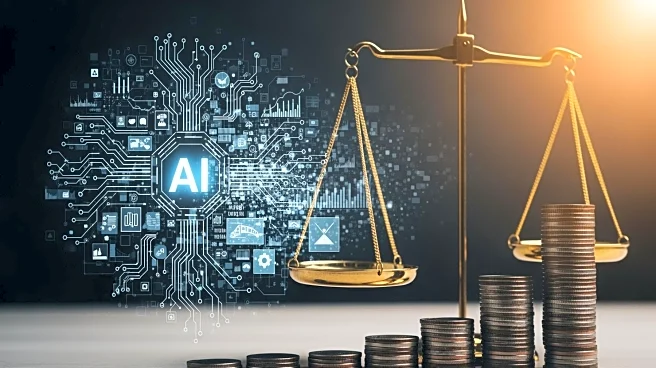What's Happening?
B2B marketers are increasingly integrating artificial intelligence (AI) into their operations, leading to a significant reduction in agency spending. According to recent research, 15.2% of surveyed B2B marketers have
decreased their agency budgets due to AI usage, while only 1.9% have increased it. This trend is more pronounced among larger organizations, with 17% reducing agency spend compared to 13.7% of small and medium-sized enterprises (SMEs). AI is reshaping how brands allocate resources, what they expect from agency partners, and the dynamics of these relationships. Companies like Datel are at the forefront, employing AI-powered 'digital twins' for each role, enhancing productivity and collaboration. Meanwhile, firms like NCC Group and Exclaimer are adopting a cautious approach, focusing on strategic partnerships and ethical AI use.
Why It's Important?
The integration of AI in B2B marketing is transforming the industry by altering traditional client-agency relationships. As AI tools become more prevalent, agencies are expected to shift from operational roles to more strategic and creative functions. This change could lead to a reduced need for agencies in content and creative production, impacting the agency business model. Brands are increasingly relying on AI for efficiency and innovation, which may result in a demand for freelancers who can leverage AI tools effectively. The shift also raises concerns about transparency and ethical use of AI, as brands seek assurance that their agency partners are using AI responsibly. This evolution underscores the growing importance of human creativity and strategic thinking in the face of technological advancements.
What's Next?
As AI continues to influence B2B marketing, agencies may need to adapt by focusing on strategic and creative services that AI cannot replicate. Brands are likely to seek partners who demonstrate transparency and innovation in AI usage. The industry may see a rise in collaborations with freelancers who can efficiently use AI tools. Additionally, there is potential for increased scrutiny on the ethical implications of AI, prompting agencies to ensure responsible practices. The ongoing integration of AI may lead to a reevaluation of agency roles, emphasizing the need for human creativity and judgment alongside technological capabilities.
Beyond the Headlines
The shift towards AI in B2B marketing highlights broader ethical and legal considerations. As brands and agencies navigate AI integration, issues such as data privacy, transparency, and the impact on employment may arise. The reliance on AI could lead to a reevaluation of talent pipelines, emphasizing the need for skills that complement AI capabilities. Furthermore, the industry may face challenges in balancing technological efficiency with maintaining human-centric interactions, which are valued by customers. These developments could prompt discussions on the long-term implications of AI on the marketing landscape.










